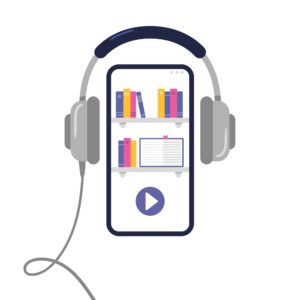 As a new writer, I strongly suggest putting audiobooks off the table for a while. Don’t let that be the primary focus of your efforts until everything else is in place first. If you’ve been at it for a while and have three or more novels published, perhaps audio is the next step.
As a new writer, I strongly suggest putting audiobooks off the table for a while. Don’t let that be the primary focus of your efforts until everything else is in place first. If you’ve been at it for a while and have three or more novels published, perhaps audio is the next step.
I will give you our experience with the process and keep in mind we are a sample size of one. After The Organized Crime and Corruption series’ completion, we tried the audiobook route through Amazon ACX. We believed that a finished series of eight books would give an “artist” enough material to see the payoff and want to become a partner in the endeavor.
After submitting an audition request, we received dozens of submittals. The decision process was difficult. No one on the staff could agree on the best candidate. After a compromise (I folded), we chose a candidate.
The process allows the narrator several months to complete the assignment, so we waited. We received several requests for time extensions until the communication went dark. A year later, we received an email from our narrator stating that he would not complete the project.
We have abandoned the audio project for the time being, but if we restart the process, we will definitely use a full-service provider and delegate ALL creative decisions.
The Financials
Some of the candidates we interviewed asked for advanced payment in violation of Amazon’s guidelines. We rejected them immediately. Watch out for scammers. We wanted a partner with skin in the game. We’re self-published. Nobody gave us an advance for writing a book.
The way the royalties work on ACX is that once you set the retail price, you split the proceeds with the narrator, 40 percent each, or you can pay on average $2,000 upfront, and all the proceeds are yours. Amazon keeps 20 percent, and you get 80. It sounds like a great deal. You get 20 percent without spending a dime. Oh, if it was only that easy.
There is always the cost of your time. Hours of listening to audio submittals until they all sound the same and the review time for the finished audio to catch mistakes. The bright side is that the contracts through ACX are simple and easy to get audio submittals. You’ll have more than you need.
Audiobooks can net larger royalties. Consumers who like audio are willing to pay much more per book, and you get the sales of the audio-only consumer expanding your reader (listener) base.
If you’ve already sunk thousands into your book cover and editing and now are looking at marketing expenses, the shared revenues model may be your best option. But remember, you must also market the audiobook. Is it worth the time and effort to make it happen? The answer could be yes, maybe later, or never. Audiobooks are not a must-do to be a successful writer. Don’t believe all the hype on the internet about the exploding audiobook market.
What Should Be On Audio?
Not everything. Audiobooks work well for narrative-based stories, and novels fit the bill nicely. I employ a large percentage of dialogue in my writing, and one suggestion made by my editor is to write a radio drama and have a studio do the work, including background sounds. I believe that’s the way to go for us, but not for everyone, and the cost will be substantially more than a read-through.
Doing It Yourself
You can make your own recordings and self-publish. You’ll need to research and purchase the right equipment, especially a quality condenser microphone. If the sound quality is bad, you’ve wasted your time. Do you have a quiet place to make the recordings? Perhaps you could rent studio time.
The formatting must be in accordance with Audible’s formatting guidelines.
Do you have a voice for radio? Not only a good voice but the right voice. How do you imagine your lead character sounding, and do you sound like that? Most people, me included, can’t stand the sound of our own voice. If you’re like me, you’ll never be happy with the product.
Perhaps you have a friend with a great voice and can entice them into doing the reading, and you’ll do the editing. But you still have to know how to edit and splice audio and purchase the equipment. Unless you plan to make audio recording a business, I would advise sticking to what you do best and writing your next novel. If you go this route, check out the free audio software Audacity. Save money where you can.
There is a learning curve with all of this. Ask yourself: Do I have the right equipment and am I technically savvy? Maybe you’ll find a new revenue stream and invest in a home studio to provide a recording service for other authors. If you do, let us know. We have fifteen books to record.